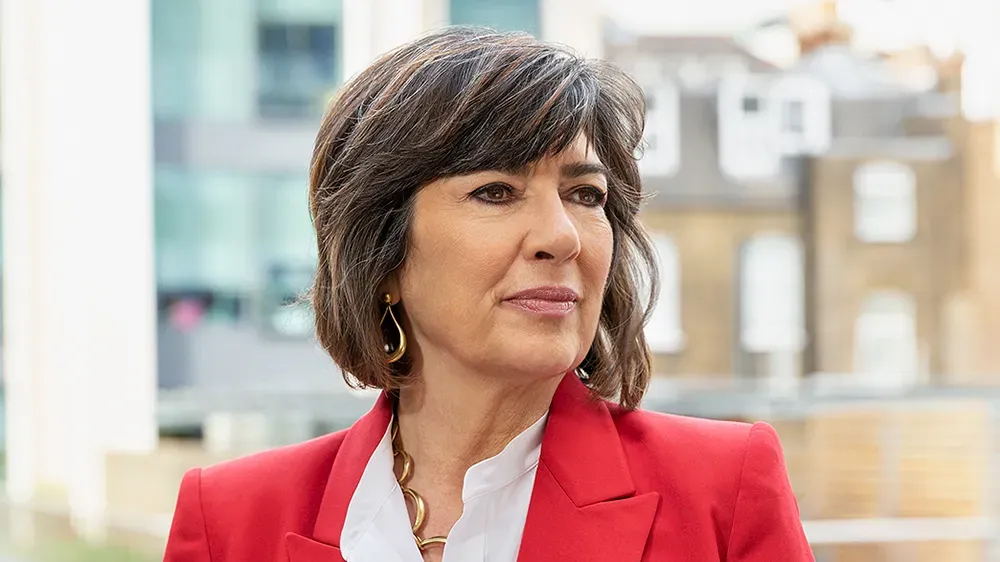Christiane Amanpour is a well-known journalist who has interviewed many world leaders throughout her career. Her dedication to journalism and uncovering the truth has made her one of the most respected figures in the field. If you’re new to journalism or interested in interviewing important people, there are many things you can learn from how Amanpour approaches her work. Here are some key lessons from her career.

1. Be Well-Prepared
One of the main reasons Amanpour is so successful in interviewing world leaders is her thorough preparation. Before each interview, she spends a lot of time researching the person she will be talking to. This includes learning about their history, policies, and personal background. Being well-prepared allows her to ask informed and challenging questions, which helps her gain respect from both the interviewee and the audience. For anyone starting in journalism, understanding the importance of preparation is crucial.
2. Set Ambitious Goals
Amanpour mentioned in an interview that she has a wish list of people she would like to interview, such as the Pope, the Queen of England, and Kim Jong Un. Even though she didn’t reveal her entire list, having such a list shows the importance of setting high goals. For journalists, aiming to interview influential figures can lead to important stories and new opportunities. Having a wish list of people you want to interview can inspire you to keep pushing forward in your career.
3. Don’t Give Up Easily
Amanpour’s experience trying to interview Dennis Rodman, who is known for his friendship with Kim Jong Un, is an example of her persistence. Even though she didn’t get the interview, she didn’t stop trying. This is an important lesson for journalists, not every lead will result in an interview, but if you keep trying and don’t give up, you might eventually succeed. Persistence is key in journalism.
4. Learn from the Best
Amanpour has often praised media outlets like The New York Times, Wall Street Journal, and BBC World Service for their excellent journalism. By recognizing what others are doing well, journalists can learn and improve their own work. It’s important to be aware of the high standards set by leading media organisations and strive to meet those standards in your reporting.

5. Support Young Journalists
As a judge for the Livingston Awards, which recognizes young journalists under 35, Amanpour has seen how much talent and innovation young people bring to journalism. She believes in the importance of supporting and mentoring the next generation of journalists. Young journalists often have new perspectives and are very comfortable with digital tools, which makes them valuable to the industry. Supporting young talent is important for the future of journalism.
6. Adapt to New Platforms
The world of media is constantly changing, and Amanpour believes that journalists need to be able to adapt to new formats, including digital and online platforms. She appreciates the high quality of journalism being produced in various media, from traditional radio to online outlets. For journalists today, being versatile and able to work across different platforms is crucial for reaching a wide audience.
7. Explore Different Ways to Tell Stories
Amanpour has a deep appreciation for documentaries, as seen in her praise for Anthony Bourdain’s “Parts Unknown.” She understands that journalism is not just about reporting hard news but also about telling stories in a way that provides depth and context. Documentaries offer a chance to explore stories more thoroughly. Journalists should consider using different formats, like documentaries or long-form articles, to tell stories in the most effective way.
8. Build Trust with Your Audience
According to Amanpour, trust is the most important thing in journalism. Journalists must be honest, rigorous, and credible to earn the trust of their audience. In today’s world, where misinformation can spread quickly, maintaining trust is more important than ever. For any journalist, building and keeping trust with your audience should be a top priority.
9. Show Empathy in Your Work

Amanpour is known for her commitment to giving a voice to those who might not otherwise be heard, especially in conflict zones. Her work shows a deep empathy for the people she reports on. For journalists, it’s important to have empathy and to try to understand the experiences of others, especially when reporting on sensitive or difficult topics. Empathy helps in telling stories that are accurate and meaningful.
10. Use Technology to Your Advantage
When asked how Google could support journalism, Amanpour emphasised the importance of using technology to protect free speech and help journalists do their jobs, even in challenging environments. Embracing technology is essential for modern journalists. By using the latest tools and platforms, journalists can continue to report important stories and reach wider audiences, even in places where traditional journalism might be restricted.
Strive for Excellence
Christiane Amanpour’s career is full of valuable lessons for journalists. Her dedication to uncovering the truth, thorough preparation, and ability to adapt to new ways of storytelling have made her one of the most respected journalists in the world. By following her example, journalists can aim to conduct meaningful interviews and tell stories that make a real impact on their audience.
